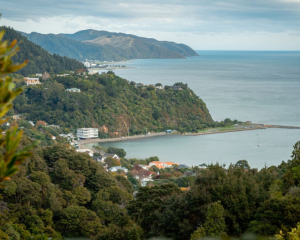
The government's first Resource Management Amendment Bill, to be introduced next month, will make changes to the Resource Management Act, freshwater environmental standards, and the National Policy Statements for Freshwater Management and Biodiversity.
It will remove additional controls for coal mining introduced by Labour that were set to end the consenting pathway for existing thermal coal mines from December 31, 2030.
Jones, in a statement, said the government's planned changes would ensure New Zealand's access to locally sourced coal so processors would "not be forced to rely on imported coal to meet their needs".
He said the impacts of extracting coal were "similar, if not the same, as those occurring in mining other minerals" and the changes would enable a wider range of consent applications for coal mining.
"Coal is a small but mighty part of New Zealand's productive output and makes a significant contribution to regional economies," he said.
"On the West Coast, coal extraction provides for the families of 280 workers at Stockton Mine which produces around 80 percent of our $300 million in sought-after premium coal exports, used in international steelmaking."
"Harnessing the economic opportunities of our mining sector, including our extensive coal resources, will be crucial to the economic prosperity of New Zealand and to ensuring we have a secure supply of fuels and minerals to keep our economy growing."
He said the government was not removing controls for coal mining in specific locations such as land excluded under the Crown Minerals Act, or removing the "robust environmental protections that all mining is subject to".
"Resource consent applications for coal mining will remain subject to the gateway tests and the Effects Management Hierarchy which requires adverse effects to be avoided, minimised, remedied, offset or compensated for."
The government expects the bill to be passed before the end of the year.













